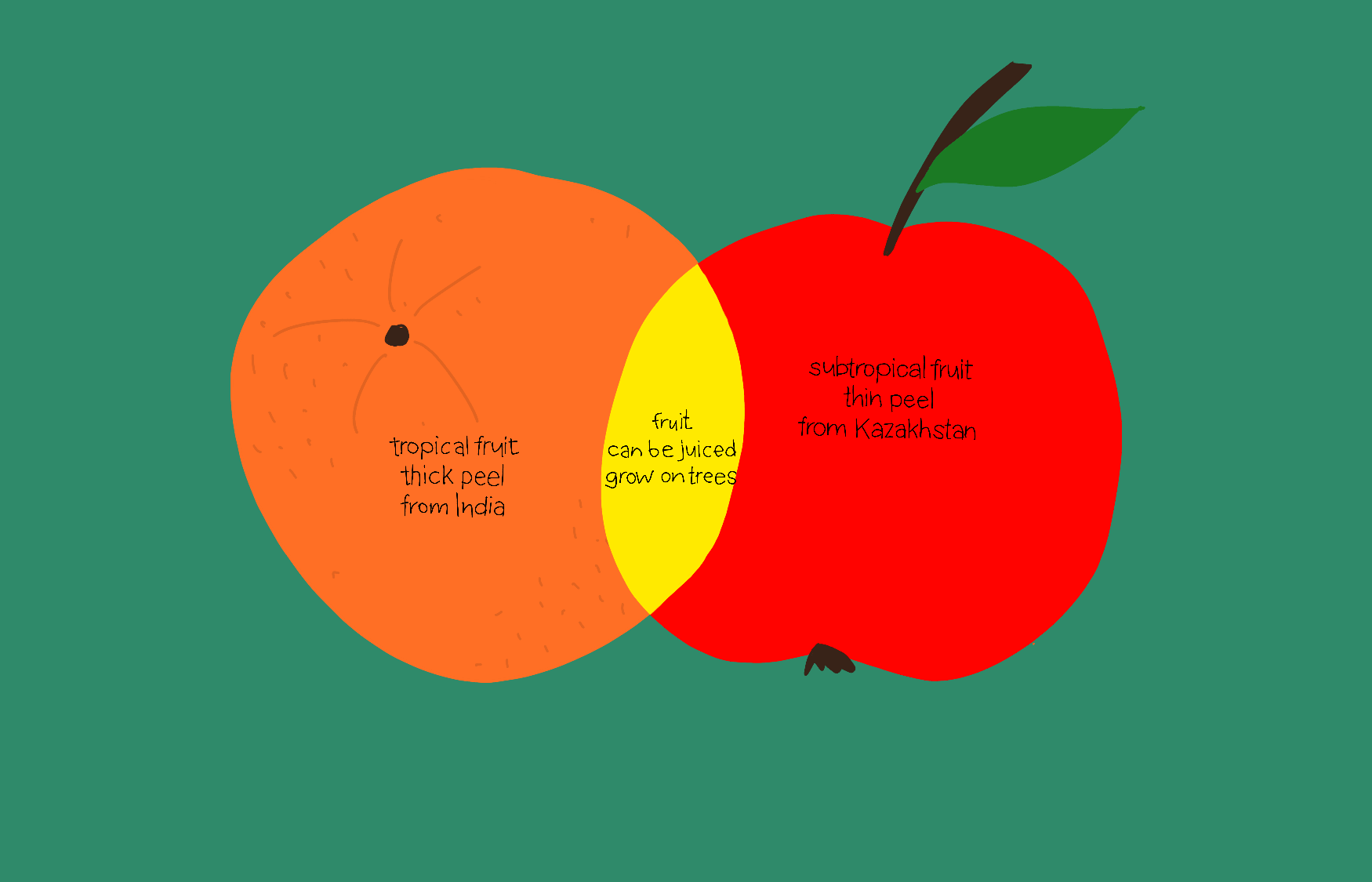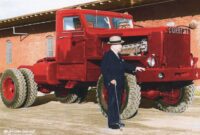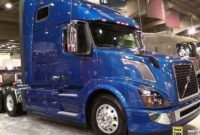Compare Pickup Trucks: Your Ultimate Guide to Choosing the Right Workhorse pickup.truckstrend.com
In the vast and varied landscape of automotive choices, pickup trucks stand as a unique and indispensable category. From hauling heavy loads and navigating rugged terrains to serving as comfortable daily drivers, these versatile vehicles cater to an incredibly diverse set of needs. However, with an ever-expanding array of models, configurations, and features, the process of choosing the "right" truck can feel overwhelming. This is where the crucial exercise of comparing pickup trucks comes into play. It’s not just about picking the biggest or the most powerful; it’s about meticulously evaluating options against your specific requirements, ensuring your investment perfectly aligns with your lifestyle, work, and budget. This comprehensive guide will equip you with the knowledge and tools to confidently navigate the world of pickup trucks and make an informed decision.
Why Comparing Pickup Trucks is Essential
Compare Pickup Trucks: Your Ultimate Guide to Choosing the Right Workhorse
Comparing pickup trucks isn’t merely a suggestion; it’s a critical step for several compelling reasons:
- Tailored to Your Needs: No two truck buyers are exactly alike. Your primary use case – be it heavy-duty towing for a construction business, off-road adventuring, daily commuting, or a mix of everything – dictates the optimal features and capabilities. A thorough comparison helps you pinpoint the truck that excels in your priority areas.
- Significant Investment: Pickup trucks, especially new ones, represent a substantial financial commitment. Making an informed decision through comparison helps you avoid costly mistakes, such as overpaying for features you don’t need or underbuying a truck that can’t handle your demands.
- Understanding Value: Beyond the sticker price, a truck’s value encompasses its fuel efficiency, maintenance costs, reliability, and resale value. Comparing these long-term aspects reveals the true cost of ownership and helps identify vehicles that offer better value over time.
- Staying Current: The pickup truck market is dynamic, with constant innovations in engine technology, safety features, infotainment, and electrification. Comparing newer models ensures you benefit from the latest advancements and choose a vehicle that meets modern standards.
- Safety and Performance: Different trucks offer varying levels of safety features, towing capacities, payload limits, and handling characteristics. A careful comparison ensures you select a truck that is not only capable but also safe and comfortable for your intended operations.

Key Factors to Consider When Comparing Pickup Trucks
To effectively compare pickup trucks, you need a clear understanding of the metrics that matter most. Here are the crucial aspects to evaluate:
-
Intended Use & Purpose:
- Work Truck: Focus on towing, payload, durability, and practical features.
- Off-Roading: Look for 4×4/AWD, ground clearance, robust suspension, locking differentials, and off-road tires.
- Daily Driver/Family Vehicle: Prioritize comfort, fuel efficiency, safety features, and interior space.
- Recreational Towing (Boats/RVs): Emphasize towing capacity, integrated brake controllers, and specialized towing packages.
-
Size & Category:
- Mid-Size Pickups (e.g., Toyota Tacoma, Ford Ranger, Chevy Colorado): More maneuverable, better fuel economy, lower price point. Suitable for lighter hauling, urban driving, and some off-roading.
- Full-Size Light-Duty Pickups (e.g., Ford F-150, Ram 1500, Chevy Silverado 1500): The most popular segment. Balance of power, capability, comfort, and technology. Ideal for most towing and hauling needs, and comfortable daily driving.
- Heavy-Duty Pickups (e.g., Ford Super Duty, Ram 2500/3500, Chevy Silverado HD): Built for maximum towing and payload. Less fuel-efficient, larger, and often more expensive. Essential for commercial use or very heavy recreational towing.
- Electric Pickups (e.g., Ford F-150 Lightning, Rivian R1T, Tesla Cybertruck): Emerging category offering instant torque, zero emissions, and often innovative features. Range, charging infrastructure, and higher initial cost are considerations.
-
Engine Options & Performance:
- Gasoline Engines: Most common. V6 engines offer a good balance of power and efficiency, while V8s provide more grunt for heavy tasks.
- Diesel Engines: Excellent for heavy towing and better fuel economy under load. Typically more expensive to purchase and maintain.
- Hybrid/Electric Powertrains: Offer improved fuel economy, lower emissions, and sometimes onboard power generation.
-
Towing Capacity: The maximum weight a truck can safely pull. This is a critical spec if you plan to tow trailers, boats, or RVs. Always factor in the weight of your cargo and passengers when calculating your needs.
-
Payload Capacity: The maximum weight a truck can carry in its bed and cabin, including passengers and cargo. Important for hauling tools, materials, or camping gear.
-
Drivetrain:
- 2WD (Two-Wheel Drive): Typically rear-wheel drive. Lighter, less expensive, and slightly better fuel economy. Suitable for paved roads and light-duty work.
- 4WD (Four-Wheel Drive) / AWD (All-Wheel Drive): Essential for off-road adventures, slippery conditions (snow/ice), or challenging job sites. Adds weight, complexity, and cost.
-
Cab Configuration & Bed Length:
- Regular Cab: Two doors, one row of seats. Maximize bed length for a given wheelbase.
- Extended Cab (e.g., SuperCab, Double Cab): Two full-size front doors, two smaller rear doors, jump seats in the back. A compromise between passenger space and bed length.
- Crew Cab (e.g., SuperCrew, CrewMax): Four full-size doors, spacious rear seating. Most popular for families or crews. Often paired with shorter beds.
- Bed Lengths: Typically range from 5.5 ft to 8 ft. Shorter beds are easier to maneuver; longer beds offer more cargo capacity.
-
Interior Features & Technology:
- Infotainment: Touchscreen size, Apple CarPlay/Android Auto, navigation.
- Comfort: Seat materials, climate control, heated/ventilated seats.
- Convenience: Storage solutions, power outlets, integrated scales, power tailgates.
-
Safety Features:
- Active Safety: Automatic emergency braking, lane-keeping assist, blind-spot monitoring, adaptive cruise control.
- Passive Safety: Airbags, robust chassis. Check crash test ratings (NHTSA, IIHS).
-
Fuel Efficiency (MPG): Especially relevant for daily drivers or high-mileage users. Diesel and smaller gas engines generally offer better MPG, but electric trucks offer the best "fuel" economy.
-
Reliability & Resale Value: Research brand and model reliability ratings (e.g., J.D. Power, Consumer Reports). Trucks with strong reliability often command higher resale values.
-
Price & Total Cost of Ownership (TCO):
- MSRP: Initial purchase price.
- Options/Trims: Upgrading can significantly increase the price.
- Fuel Costs: Based on MPG and anticipated mileage.
- Maintenance & Repairs: Varies by brand and engine type.
- Insurance: Can be higher for trucks due to size and potential repair costs.
- Depreciation: The loss in value over time.
How to Compare Pickup Trucks: A Step-by-Step Guide
- Define Your Non-Negotiables & Priorities: Before looking at a single truck, list your absolute must-haves (e.g., "must tow 8,000 lbs," "must fit in my garage," "must have crew cab"). Then, rank your other preferences (e.g., fuel economy, luxury features, off-road capability).
- Identify Top Contenders: Based on your needs, research 3-5 models that broadly fit the bill. Popular choices include Ford F-150, Ram 1500, Chevrolet Silverado 1500, GMC Sierra 1500, Toyota Tundra, and Nissan Titan for full-size; and Toyota Tacoma, Ford Ranger, and Chevrolet Colorado for mid-size.
- Compare Specifications Side-by-Side: Use manufacturer websites, automotive review sites, and comparison tools to create a detailed spreadsheet. Fill in data for towing, payload, MPG, engine options, available cab/bed configurations, and key safety features for each contender.
- Read Reviews & Watch Videos: Consult professional automotive reviews (e.g., MotorTrend, Car and Driver, Edmunds) and owner reviews (e.g., forums, YouTube). Pay attention to real-world performance, common issues, and user satisfaction.
- Test Drive Extensively: This is crucial. Drive your top choices on various road types (highway, city, rough roads if applicable). Pay attention to:
- Ride quality and handling.
- Engine power and transmission smoothness.
- Braking performance.
- Interior comfort, visibility, and ergonomics.
- Noise levels.
- Ease of parking and maneuverability.
- Consider Total Cost of Ownership (TCO): Beyond the sticker price, factor in estimated fuel costs, insurance premiums, maintenance schedules, and projected depreciation. Websites like Edmunds and Kelley Blue Book offer TCO calculators.
- Negotiate and Purchase: Once you’ve narrowed down your choice, research fair market prices, consider financing options, and negotiate confidently. Don’t be afraid to walk away if the deal isn’t right.
Representative Pickup Truck Comparison Table (Starting MSRPs are Estimates and Subject to Change)
| Model | Category | Starting MSRP Range (USD) | Max Towing (lbs) | Max Payload (lbs) | Est. MPG (Combined, Gas) | Key Differentiator / Best For |
|---|---|---|---|---|---|---|
| Ford F-150 | Full-Size LD | $36,000 – $85,000+ | 14,000 | 3,325 | 20-22 | Most popular, wide range of trims/engines, Pro Power Onboard (hybrid), strong resale. |
| Ram 1500 | Full-Size LD | $39,000 – $85,000+ | 12,750 | 2,300 | 19-22 | Class-leading interior comfort & tech, coil-spring suspension for smooth ride. |
| Chevy Silverado 1500 | Full-Size LD | $37,000 – $80,000+ | 13,300 | 2,260 | 18-20 | Strong engine lineup, Multi-Flex tailgate, balanced capability. |
| GMC Sierra 1500 | Full-Size LD | $40,000 – $88,000+ | 13,200 | 2,240 | 18-20 | Premium version of Silverado, more upscale interior, MultiPro tailgate. |
| Toyota Tundra | Full-Size LD | $42,000 – $70,000+ | 12,000 | 1,940 | 19-20 | Renowned Toyota reliability, standard i-FORCE MAX hybrid powertrain. |
| Nissan Titan | Full-Size LD | $45,000 – $65,000+ | 11,030 | 1,710 | 18-19 | Standard V8 engine, strong warranty, good value for money. |
| Toyota Tacoma | Mid-Size | $32,000 – $55,000+ | 6,800 | 1,685 | 20-22 | Legendary off-road capability, high resale value, rugged appeal. |
| Ford Ranger | Mid-Size | $34,000 – $50,000+ | 7,500 | 1,805 | 22-23 | Strong turbo-four engine, decent towing for its class, user-friendly tech. |
| Chevy Colorado | Mid-Size | $30,000 – $55,000+ | 7,700 | 1,610 | 20-22 | Good blend of work and play, impressive off-road trims (ZR2), strong engine options. |
| Ford F-150 Lightning | Electric | $55,000 – $95,000+ | 10,000 | 2,235 | 68-76 MPGe | All-electric, instant torque, Pro Power Onboard (massive power export), frunk. |
Note: All prices are starting MSRPs for base models and can vary significantly based on trim level, options, market conditions, and regional incentives. Max towing/payload capacities are for specific configurations and may require optional packages. MPG figures are EPA estimates for gasoline models; electric vehicles use MPGe.
Frequently Asked Questions (FAQ) about Comparing Pickup Trucks
Q1: What’s the main difference between a light-duty (1/2 ton) and a heavy-duty (3/4 ton, 1-ton) pickup?
A1: Light-duty trucks (e.g., F-150, Ram 1500) are designed for general use, offering a balance of comfort, capability, and fuel efficiency. Heavy-duty trucks (e.g., F-250/350, Ram 2500/3500) are built with stronger frames, suspensions, and powertrains to handle significantly higher towing and payload capacities, typically for commercial or very heavy recreational use. They are less fuel-efficient and less comfortable for daily driving.
Q2: How important is towing capacity vs. payload capacity?
A2: Both are critical, but their importance depends on your primary use. If you frequently tow large trailers (RVs, boats, heavy equipment), towing capacity is paramount. If you haul heavy materials in the truck bed (gravel, lumber, tools) or carry many passengers and gear, payload capacity is more important. Always know the weight of what you’ll carry/tow and ensure the truck’s capacities exceed it.
Q3: Should I buy a new or used pickup truck?
A3: New trucks offer the latest features, warranties, and customization options but come at a higher price and immediate depreciation. Used trucks are more budget-friendly and have already depreciated significantly, offering more "truck for the money." However, they may lack the newest tech and might have a shorter warranty or unknown history. Your budget and desired features should guide this decision.
Q4: Gas vs. Diesel vs. Electric – which engine type is best?
A4:
- Gas: Most common, lower initial cost, good all-around performance. Best for general use and occasional towing.
- Diesel: Higher initial cost, better fuel economy under load, excellent for heavy, sustained towing due to high torque and durability. Maintenance can be more expensive.
- Electric: Zero emissions, instant torque, quiet operation, and lower "fuel" costs. Higher initial purchase price, reliance on charging infrastructure, and potential range anxiety for long-distance towing are considerations. Best for those with access to charging and who prioritize environmental impact and quiet operation.
Q5: What is "Total Cost of Ownership" (TCO) and why should I care?
A5: TCO is the sum of all costs associated with owning a vehicle over its lifespan, not just the purchase price. It includes depreciation, fuel, insurance, maintenance, repairs, and financing costs. Caring about TCO helps you understand the true financial impact of your truck choice beyond the initial sticker price, revealing that a cheaper truck upfront might be more expensive to own long-term.
Conclusion
Comparing pickup trucks is a detailed, multi-faceted process, but an indispensable one for securing the right vehicle for your needs. By systematically evaluating key factors like intended use, size, engine performance, capacities, and crucial features, you can cut through the noise and identify the truck that truly aligns with your requirements and budget. Remember, the "best" truck isn’t a universal title; it’s the one that perfectly fits your unique demands. Take your time, do your research, and test drive thoroughly. Your ideal pickup truck is out there, waiting to be discovered, ready to tackle whatever challenges you throw its way.


